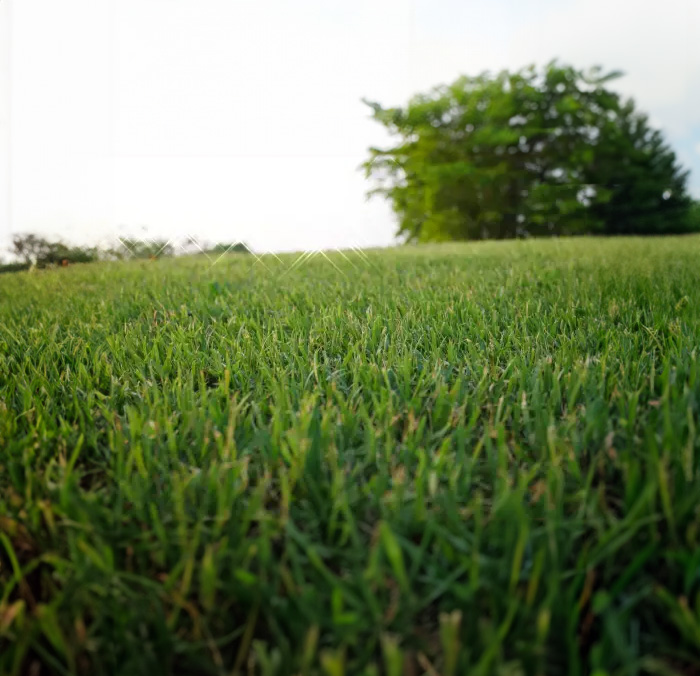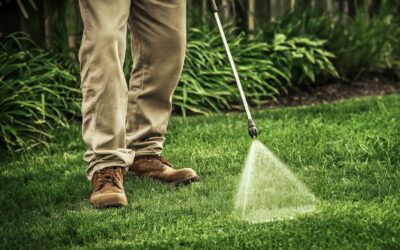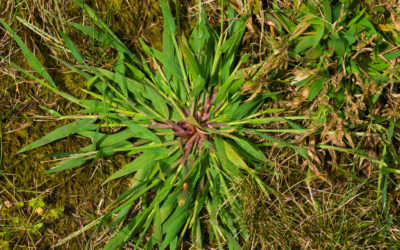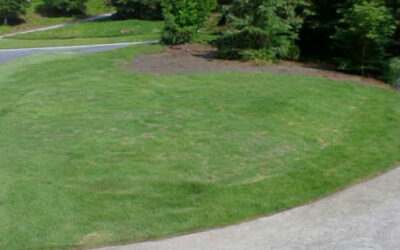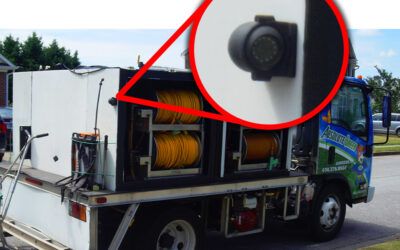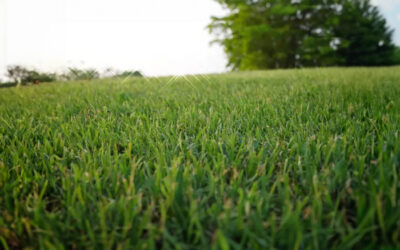Bermuda Grass
Bermuda grass is a warm-season perennial widely used for lawns in Georgia and the southeastern United States. Contrary to its name, it is not native to the island of Bermuda and actually originates in the eastern hemisphere.
It is a self-healing grass, which means it can fill in bare or thin spots by literally taking new ground. It does this by sending out runners called stolons and below-ground stems called rhizomes. These runners move fast over bare ground and send up fresh grass blades. When taking fresh ground, they move fast and stretch far and wide. And when there is no more easy ground to take, these runners begin to knit together tightly, creating a dense, thick mat of grass.
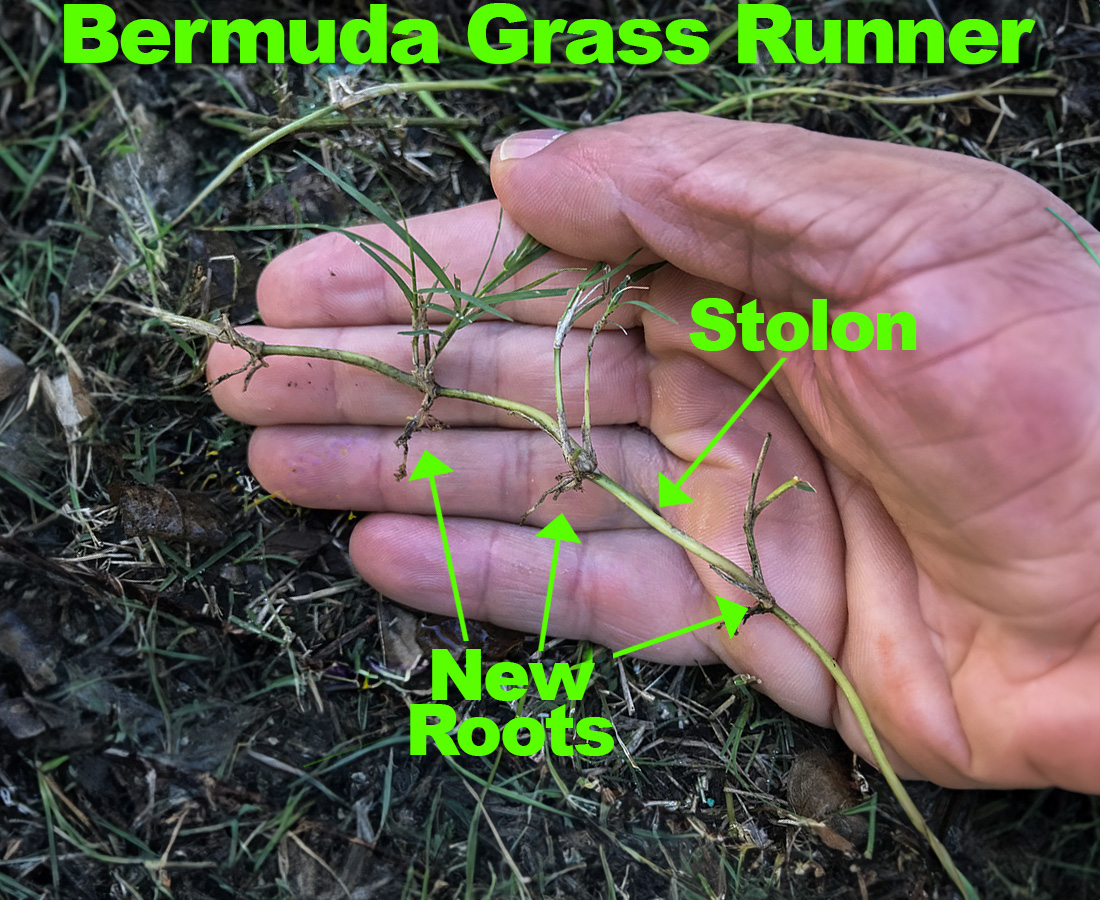
Seasonal Changes
Late spring– Georgia summer temperatures are rising and growth of bermuda grass starts to accelerate. Here is when you start to see runners and the Bermuda will spread and thicken.
Summer– Temperatures continue to rise and your grass is starting to grow rapidly. Bermuda grass thrives in the 85-90 degree temps. As long as it’s got enough water, it will continue this way until fall.
Fall – Bermuda grass growth starts to slow but will remain green until the the first frosts of the year. Now is the time to apply a pre-emergent herbicide.
Winter– At this time, Bermuda enters dormancy and turns brown. Remember, while it is dormant, it is still alive, so don’t pull it up or use a non-selective herbicide to kill it.
Early Spring– Your lawn is starting to wake up out of dormancy. There will be slow growth and a slow greening of the lawn, as some new green blades shoot up. There will also be some weeds if as well as some weeds. From March 15th to April 30th is the best time to scalp your yard.
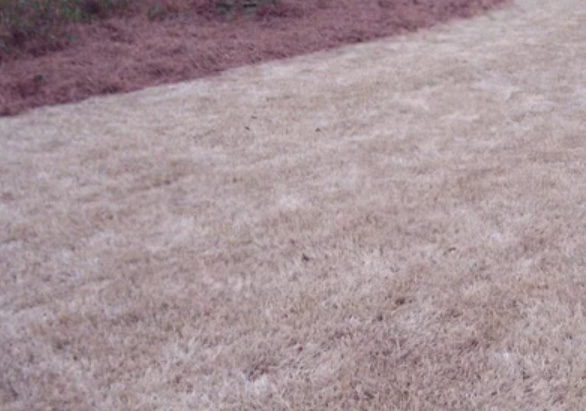
Tips for Maintaining Bermuda Grass
- Mow Frequently: Keep your lawn mower set to a height of 1-2 inches. Cutting too much at once can expose the brown, lower part of the plant.
- Monitor Watering: Bermuda grass needs 1-1.5 inches of water per week. Use a soil moisture meter to ensure the lawn is not over or under-watered.
- Fertilize Regularly: Establish a consistent fertilization schedule. Bermuda grass thrives with regular feeding which promotes healthy growth and vibrant color.
- Manage Shade: Trim trees and bushes to allow maximum sunlight to reach the grass. If possible, remove or raise the canopy of trees that cast significant shade.
- Pre-Emergent Weed Control: Apply pre-emergent herbicides to prevent weeds from taking root. This proactive step can save a lot of time and effort later.
Most of our clients have bermuda grass, and we have years of experience in keeping their lawns growing strong and green. If you have any specific questions about your lawn (whether you’ve got Bermuda, Zoysia, Fescue, or Centipede grass) feel free to give us a call at 404-376-9554.
Hope to hear from you soon!
Bermuda Grass
Bermuda grass is a warm-season perennial widely used for lawns in Georgia and the southeastern United States. Contrary to its name, it is not native to the island of Bermuda and actually originates in the eastern hemisphere.
It is a self-healing grass, which means it can fill in bare or thin spots by literally taking new ground. It does this by sending out runners called stolons and below-ground stems called rhizomes. These runners move fast over bare ground and send up fresh grass blades. When taking fresh ground, they move fast and stretch far and wide. And when there is no more easy ground to take, these runners begin to knit together tightly, creating a dense, thick mat of grass.

Seasonal Changes
Late spring– Georgia summer temperatures are rising and growth of bermuda grass starts to accelerate. Here is when you start to see runners and the Bermuda will spread and thicken.
Summer– Temperatures continue to rise and your grass is starting to grow rapidly. Bermuda grass thrives in the 85-90 degree temps. As long as it’s got enough water, it will continue this way until fall.
Fall – Bermuda grass growth starts to slow but will remain green until the the first frosts of the year. Now is the time to apply a pre-emergent herbicide.
Winter– At this time, Bermuda enters dormancy and turns brown. Remember, while it is dormant, it is still alive, so don’t pull it up or use a non-selective herbicide to kill it.
Early Spring– Your lawn is starting to wake up out of dormancy. There will be slow growth and a slow greening of the lawn, as some new green blades shoot up. There will also be some weeds if as well as some weeds. From March 15th to April 30th is the best time to scalp your yard.

Tips for Maintaining Bermuda Grass
- Mow Frequently: Keep your lawn mower set to a height of 1-2 inches. Cutting too much at once can expose the brown, lower part of the plant.
- Monitor Watering: Bermuda grass needs 1-1.5 inches of water per week. Use a soil moisture meter to ensure the lawn is not over or under-watered.
- Fertilize Regularly: Establish a consistent fertilization schedule. Bermuda grass thrives with regular feeding which promotes healthy growth and vibrant color.
- Manage Shade: Trim trees and bushes to allow maximum sunlight to reach the grass. If possible, remove or raise the canopy of trees that cast significant shade.
- Pre-Emergent Weed Control: Apply pre-emergent herbicides to prevent weeds from taking root. This proactive step can save a lot of time and effort later.
Most of our clients have bermuda grass, and we have years of experience in keeping their lawns growing strong and green. If you have any specific questions about your lawn (whether you’ve got Bermuda, Zoysia, Fescue, or Centipede grass) feel free to give us a call at 404-376-9554.
Hope to hear from you soon!

